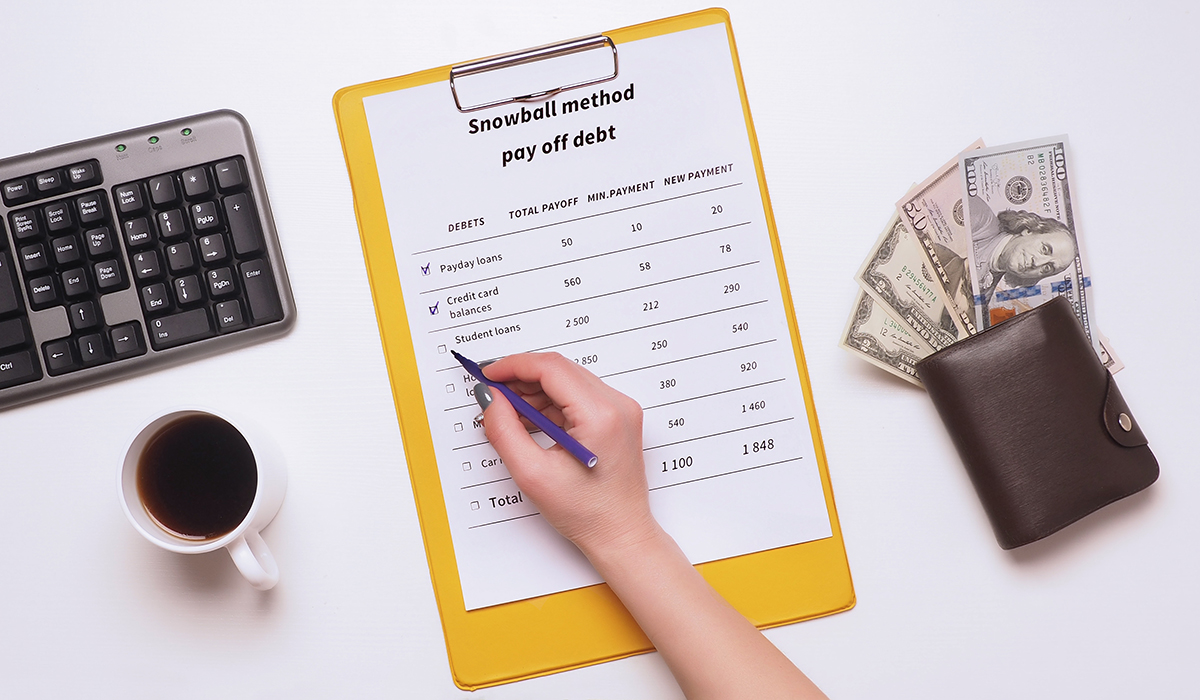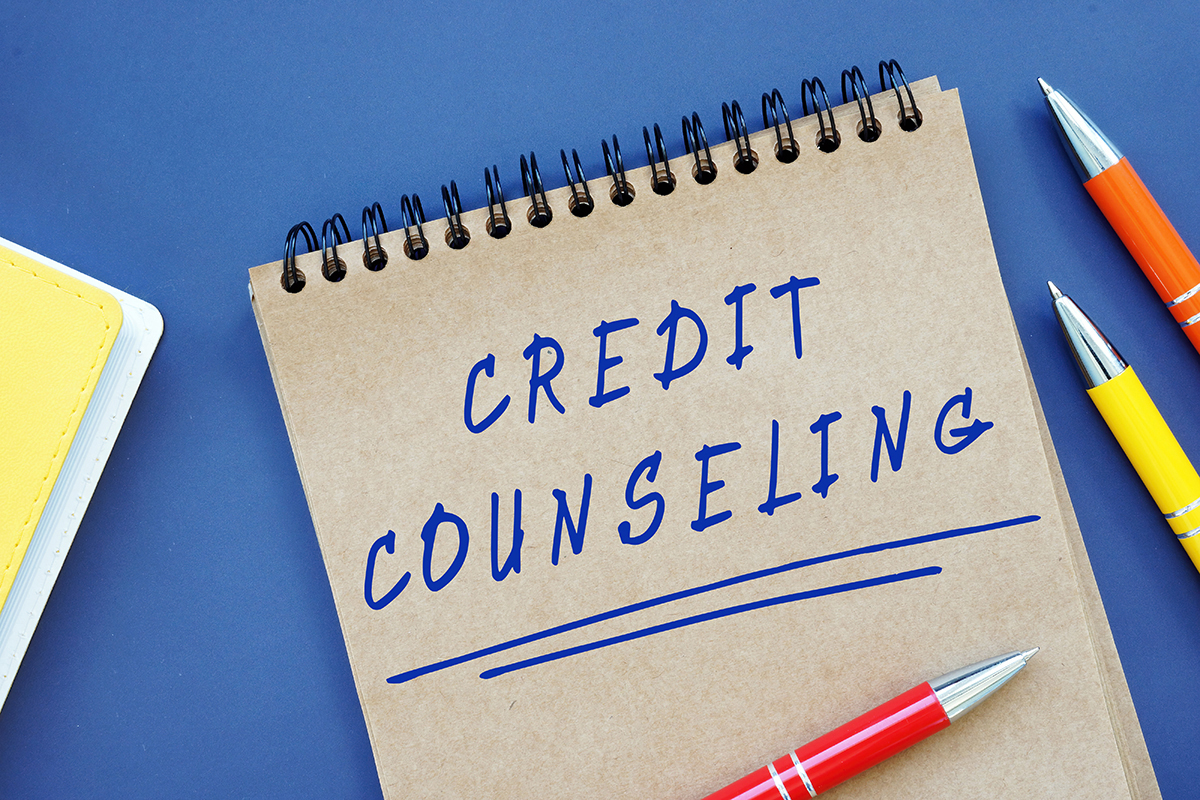Credit card debt is a common financial burden that can take a toll on your mental and emotional well-being. The constant worry and stress of not being able to keep up with payments can have a significant impact on your overall quality of life.
There are strategies and options available to help you alleviate this financial strain.
Debt Snowball Method
The debt snowball method focuses on paying off your debts in a specific order, starting from the smallest balance to the largest, regardless of the interest rates attached to each debt. [1]
Begin by compiling a list of all your credit card debts, including the outstanding balance and minimum monthly payment for each.
Arrange your debts in ascending order according to the outstanding balance, with the smallest balance at the top. This sets the foundation for your snowball repayment plan.
While continuing to make minimum payments on all your credit card debts, allocate any additional funds you can afford towards paying off the smallest debt.
Once the smallest debt is paid off, redirect the amount previously allocated to its minimum payment towards the next smallest debt. This creates a snowball effect, as the amount available for repayment continues to grow with each debt paid off.

Transferring Credit Card Balances
A credit card balance transfer is a method that involves moving existing credit card debt to a new credit card with a lower or zero percent interest rate for an introductory period. This can save you a significant amount of money on interest payments, allowing you to pay off the debt more efficiently.
Research and compare different credit cards to find the one that best suits your needs. Look for cards with a low or zero percent interest rate for the introductory period. Consider any transfer fees that might be involved. The objective is to find a card that offers the most favorable terms and conditions.
Monthly Budget
Create a comprehensive monthly budget. Start by listing all your sources of income, such as salary, side gigs, or passive income. Subtract your fixed expenses, such as rent or mortgage payments, utilities, and insurance premiums. These are expenses that must be paid each month.
Once your fixed expenses are out of the way, tackle variable expenses. This includes expenses like groceries, dining out, entertainment, and transportation costs. Take a close look at each expense and identify areas where you can cut back.
Allocate a portion of your monthly budget towards your credit card bills. This should be a set amount that you can comfortably pay off each month, while still covering your basic needs.

Debt Consolidation
Debt consolidation involves combining multiple credit card debts into a single loan or repayment plan. This consolidation can lower the interest rates, simplify the repayment process, and ultimately reduce the total amount owed. By consolidating credit card debt, you can often secure a lower interest rate compared to the individual rates on your various cards.
One of the most popular methods of debt consolidation is through a personal loan. With a personal loan, you can use the lump sum to pay off your credit card debts in one fell swoop. This not only simplifies the repayment process but also helps individuals avoid the temptation of accumulating further credit card debt. Personal loans usually offer more favorable interest rates, making it easier to pay off the debt over time. [2]
Collaborate With Your Creditors
Credit card companies are generally open to negotiating with customers because they would rather receive some payment than none at all. By approaching them with a willingness to address the debt and find a reasonable solution, you can build a proactive relationship that benefits both parties involved.
Start by contacting the customer service department of each credit card company you owe. Explain your current predicament and express your willingness to pay off your debt.
When negotiating with your creditors, be prepared to provide a detailed explanation of your financial hardship. Explain the reasons that led to your current financial situation, such as a job loss, medical emergency, or unexpected expenses. Let them know that you are committed to finding a reasonable solution and are willing to work together to make it happen.
Some creditors may be open to lowering your interest rates, reducing your monthly payments, or waiving certain fees. They may also offer you a debt settlement option where you can pay a lump sum that is lower than the total debt amount to settle the account.
If you reach an agreement with your creditors, ensure that all the terms are documented in writing.

Find Assistance With Debt Relief
Debt relief programs are designed to assist individuals in reducing or eliminating outstanding debts, including credit card debt. These programs work by negotiating with creditors on the borrower’s behalf to lower the total amount owed, reduce interest rates, or create a more manageable payment plan.
When seeking help through debt relief, whether through credit counseling, debt consolidation, or debt settlement, these options provide the means to reduce or eliminate outstanding debts.
Get Credit Counseling
Credit counseling entails working with trained professionals who specialize in helping manage credit card debt. These professionals are knowledgeable about various debt relief options and can provide advice tailored to your specific situation. By seeking credit counseling, you can gain valuable insights into effective strategies for reducing your debt and improving your financial health.
When you engage with a credit counselor, they will carefully assess your financial situation, considering factors such as your income, expenses, and outstanding debts. The counselor will work closely with you to create a personalized plan to tackle your credit card debt effectively.
Credit counseling can also provide valuable education on budgeting and financial planning. Learning how to create a realistic budget and effectively manage your expenses is crucial for long-term financial stability. Credit counselors can teach you these skills and help you develop healthy financial habits that will serve you well beyond your credit card debt relief journey.
Once you enroll in a credit counseling program, your counselor will communicate with your creditors on your behalf, negotiating lower interest rates or reduced monthly payments. This can significantly ease your financial burden, making it more manageable to pay off your credit card debt.

Contact the Frego Law office today if you are considering bankruptcy to get credit card debt relief.
Sources:
[1] Warshaw, J. (2024, May 31). How to Pay Off Credit Card Debt. Ramsey Solutions. https://www.ramseysolutions.com/debt/how-to-pay-off-credit-card-debt
[2] Brozic, J. (2024, March 5). How to pay off credit card debt – 3 strategies. Intuit Credit Karma. https://www.creditkarma.com/credit-cards/i/how-to-pay-off-credit-card-debt-fast




